Learn why you should add vitamin C serum to your skincare routine
| Estimated Reading Time- 9 minutes |
5 Reasons to Add Vitamin C Face Serum to Your Skincare Routine
If you’re as much of a beauty buff as we are, you’re probably aware of how face serums emerged first as a trend in the early 2010s but have stayed as a staple in the skincare community. It seems as though there’s a serum for everything and we have to be honest, every ingredient just seems better in face serum form. One such ingredient we’re going to be talking about a lot today is vitamin C. Yep, the holy grail of all skincare actives. Read along to know crucial information on perhaps the best face serum of all time and find out why a vitamin c face serum deserves a spot on your vanity!
Highlights:
|

What are natural sources of Vitamin C?
The pharmaceutical industry has progressed miles and as a result, you can now get small capsules or pills of just about any chemical/nutrient concoction you want! Thus, it has never been easier to consume vitamins or add them to your diet if you’re deficient. But, we believe that natural is better (well… most of the time!) So, skip the capsules and go ‘au naturel’ to get that extra bit of vitamin C with any of the following:
- Amla (Indian gooseberry) - A popular fruit that frequents ayurvedic remedies whether they concern, skin, hair or gut health. There’s no doubt amla deserves its own spot when talking about sources of vitamin C. It has approximately 700 mg of vitamin C in a volume of 100 g.
- Citrus Fruits - Fruits rich in citric acid (such as oranges, mandarins, lemons, limes, grapefruits, etc.) are more popular when it comes to the knowledge of sources of this ever-so-essential vitamin C.
- Cruciferous Vegetables - Fruits and veggies are where most of this vitamin is at. So it shouldn’t be a surprise that cruciferous veggies like broccoli, brussels sprouts, cabbage, and cauliflower are great sources of vitamin C
- Other Vegetables & Fruits - Some other natural sources of our vitamin of the day include fruits like strawberries, kiwis, cantaloupes, and vegetables like bell peppers, tomatoes, potatoes and a whole lot more!
-
Now whether you apply these topically through home remedies or buy products which have these fruits and veggies as the primary ingredients, is a choice you should make but simply incorporating these in your diet regularly the OG way can bring about a great difference in the quality of your skin!
Is vitamin C face serum suitable for all skin types?
When it comes to the suitability of a Vitamin C face serum, people understandably have a lot of questions. After all, it is a potent active that can do more harm than good if not used properly. So, what’s the deal? Is Vitamin C Face Serum suitable for all skin types? The answer is… *drumroll please* Yes (with just a few exceptions)! Whatever your skin type may be, the trick is to apply your best vitamin C face serum according to your needs.
So the frequency with which you apply a face serum for glowing skin, how much you use and what concentration it is, depends entirely on your skin type. Thus, vitamin C face serum is perfectly suitable for oily and dry skin, can do wonders when added to any face brightness cream or face serum. A Vitamin C face serum is great for combination skin and people with sensitive, acne-prone (skin can use it too), provided they’re careful about their face serum usage. If Vitamin C face serum does not suit a particular skin type, one can even try all natural and ayurvedic Kumkumadi Serum.

5 reasons your skincare routine needs a vitamin C face serum?
We’ve been rambling about the awesomeness of Vitamin C and how great it is when found in face serums or face oils, but what’s the catch? Why do you really need to add Vitamin C face serum to your skincare routine? Here are 5 reasons for the same:
1. Vitamin C face serum minimizes the signs of ageing
As we age, the levels of collagen (a protein responsible for the elasticity of the skin in the human body) drop, meaning our skin starts to sag and more wrinkles and fine lines start to appear on the face. Our miracle vitamin C face serum is popular for its properties that boost the production of collagen. Thus, vitamin C makes for the best face serum that effectively minimizes (and possibly even reverses) signs of ageing.
2. Vitamin C face serum reduces hyperpigmentation and dark spots on face
Hyperpigmentation and dark spots have plagued the skincare community for decades. These spots grace the face as a result of stubborn acne and collectively form a pesky problem that we no longer wish to deal with. The solution? Face serum for oily skin that consists of vitamin C! So, whether you’re dealing with sun spots or hell-sent melasma, the ability of this vitamin to inhibit melanin synthesis when applied topically can fade out the scarring and spots, leaving you with clear, even-toned skin.
3. Vitamin C face serum protects our skin from UV rays
Our skin suffers from the harshness of the UV rays and pollution daily. This results in a dull and lifeless appearance. Research suggests that regular application of vitamin C face serum can help restore the skin’s natural glow and make it appear brighter and more vibrant.
4. Vitamin C face serum hydrates the skin
In these rapid heat waves, we all need our skin to be properly hydrated. Despite what others tell you, simply drinking water is not enough for your skin to retain appropriate amounts of moisture. For this purpose, the root cause needs to be found and solved. In this case, the culprit is inadequate barrier function. When your barrier function isn’t up to the mark, it can prevent trans epidermal water loss, which guarantees that your skin will end up looking dry and crusty. But, with regular application of a vitamin C face serum, dry skin can retain moisture and vibrancy a lot better!
5. Vitamin C face serum improves the skin’s texture
Multiple studies prove that vitamin C is truly a godsend for people with texture issues in their skin. This active, science-backed ingredient targets tiny bumps, fine lines, acne lesions, pimple scars, wrinkles, and almost every other type of textural anomaly on one’s skin. Regular application of vitamin C face serum results in smoother-looking and smoother-feeling skin. What more can we ask for?
How to use vitamin C face serum?
If you’re already familiar with the world of face serums, incorporating them you’re your skincare routine shouldn’t be too difficult of a task for you. A Vitamin C face serum can be used the same way one may use any other face serum. Here’s a general guideline:
- Cleanse your face with a mild ayurvedic face wash.
- Exfoliate with a gentle face scrub, if necessary. You could try Kumkumadi Face Scrub.
- Wash your face with lukewarm water and let it air dry (if you’re impatient like most of us, pat it dry, please don’t wipe or rub with a towel!)
- Spritz on some rose face water, if that is what you do normally.
- Apply 3-4 drops of your vitamin C face serum and gently rub it in with your fingertips.
- Apply a light layer of moisturizer for face that works for you. A
- Follow it up with sunscreen with minimum SPF30 during the day (skip this step at nighttime).
- Repeat every day. You may start to see results anywhere between 8-12 weeks.
Other ways to get some extra vitamin C for yourself
Though face serums and face oils are our preferred way of getting enough vitamin C for the skin, they’re certainly not the only way. Here’s how you can add some more vitamin C, in addition to the Vitamin C face serum, to benefit your skin:
- Increase the consumption of to give your skin a healthy boost of glow. Nature’s way is the best (usually)!
- Make vitamin C natural ayurvedic face pack for glowing skin at home to pamper yourself every once in a while.
- Dry some orange peels till they’re completely dehydrated, and blitz them into a fine powder. Mix two tablespoons of this powder with 1½ tablespoons of steam distilled rose water or rose face toner and 2 teaspoons of lemon juice, till they form a smooth paste. Apply this concoction to your face in an even layer, let it dry for 20 minutes and wash off with water. Your skin will thank you!
- Mix in capsules of vitamin C oil with your regular moisturizer for face or some aloe vera gel for an instant glow (this method is more suitable for people with dry skin as face serum can help).
- Choose other ayurvedic skincare products that have vitamin C in them. May it be your face cleanser, moisturizer for face or even a sheet mask, an extra boost of vitamin C can’t hurt!

Precautions to take with a vitamin C face serum
As mentioned previously, vitamin C is a potent active, so here are some precautions one should take when using a vitamin C face serum:
- Don’t combine it with other actives like retinol, AHAs, BHAs, Niacinamide, etc. in the same routine. All these powerful ingredients when put together, can irritate your skin, causing, acne breakouts, peeling, rashes, flakiness and a lot worse too!
- Don’t step out in the sun without SPF30! Vitamin C can help reverse sun damage but it sadly, also makes the skin sensitive to sunlight, meaning more damage and irritation, so never skip that sunscreen during the day!
- Don’t apply vitamin C face serum if you’re a teenager or a child. Fellow parents, please note: vitamin c is too powerful of an ingredient for young skin to digest. Let your wards wait till they reach their 20s.
- Assuming your skin isn’t seasoned with vitamin C face serum or other actives, start slow. Don’t apply it every day from the get-go. Slowly increase the frequency. Also start with lower concentrations of vitamin C in your face serum. Begin with 5-10% and slowly make your way up to 20-25% vitamin C.
- Apply your Vitamin C face serum at the same time every day for maximum results.
- Properly screw the lid on, immediately after usage to prevent your face serum from being denatured.
- Store your bottle in a cool spot, away from direct sunlight. Also make sure to purchase a Vitamin C face serum that comes in a dark, glass bottle so that the contents cannot be disturbed by heat or light.
- Check the labels before selecting a face serum to ensure you’re not allergic to any of the ingredients in it.
Final Takeaway
That’s about as comprehensive as a blog on Vitamin C face serums can get. Now that you know of the pros and cons of vitamin C and how amazing it can be for your skin, so, you must be on the hunt for a face serum for dry skin or oily skin to be added to your collection. We recommend you check out Shubhr Vitamin C Face Serum with Hyaluronic Acid for Dark Spot Correction and Glowing Skin It has great moisturising properties owing to the presence of hyaluronic acid and makes use of amla to source vitamin C. Did you know, Amla (Indian gooseberry) has almost 20 times more vitamin C than oranges? Not just good for hair! Keep checking this space for more fun, informative vlogs on wellness & beauty… Until next time!
Recommended Products by Blue Nectar :
Kumkumadi Tailam Face Serum with Pure Sandalwood & Saffron for Glowing
Shubhr Vitamin C Face Serum with Hyaluronic Acid for Dark Spot Correction and Glowing Skin
Shubhr Bakuchi Anti Aging Serum | Natural Retinol Alternative for Youthful Skin
Shubhr Plum & Neem Face Serum with Vitamin C for Acne Prone Skin and Acne Marks


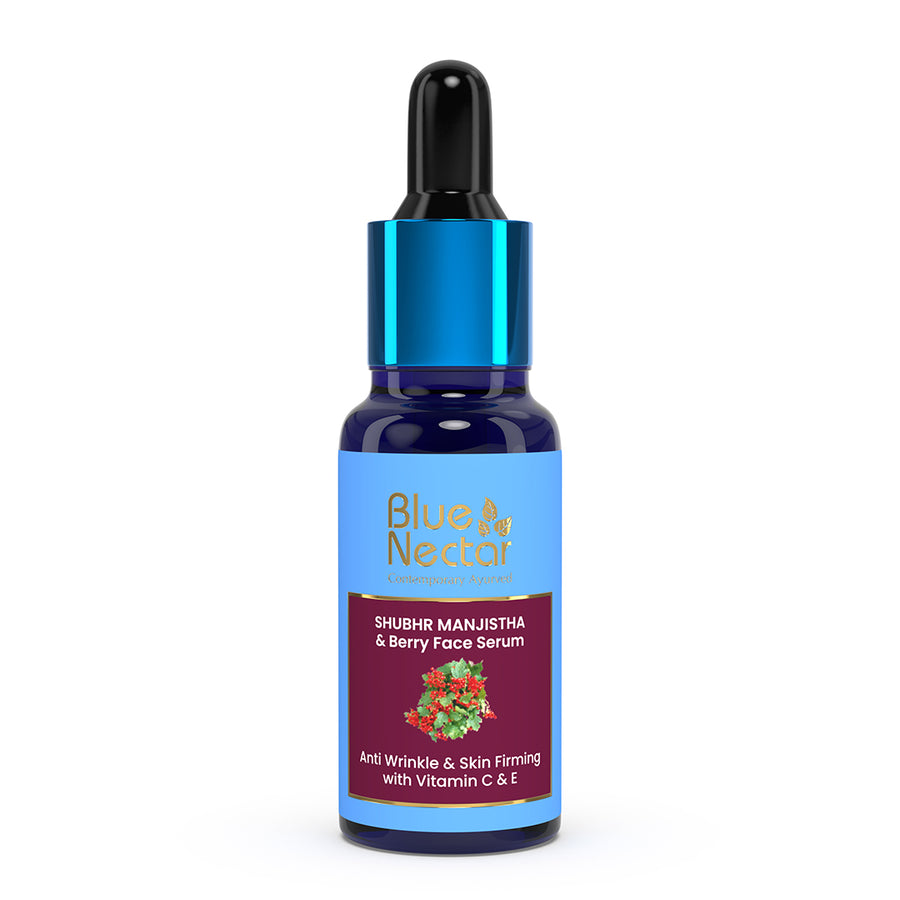

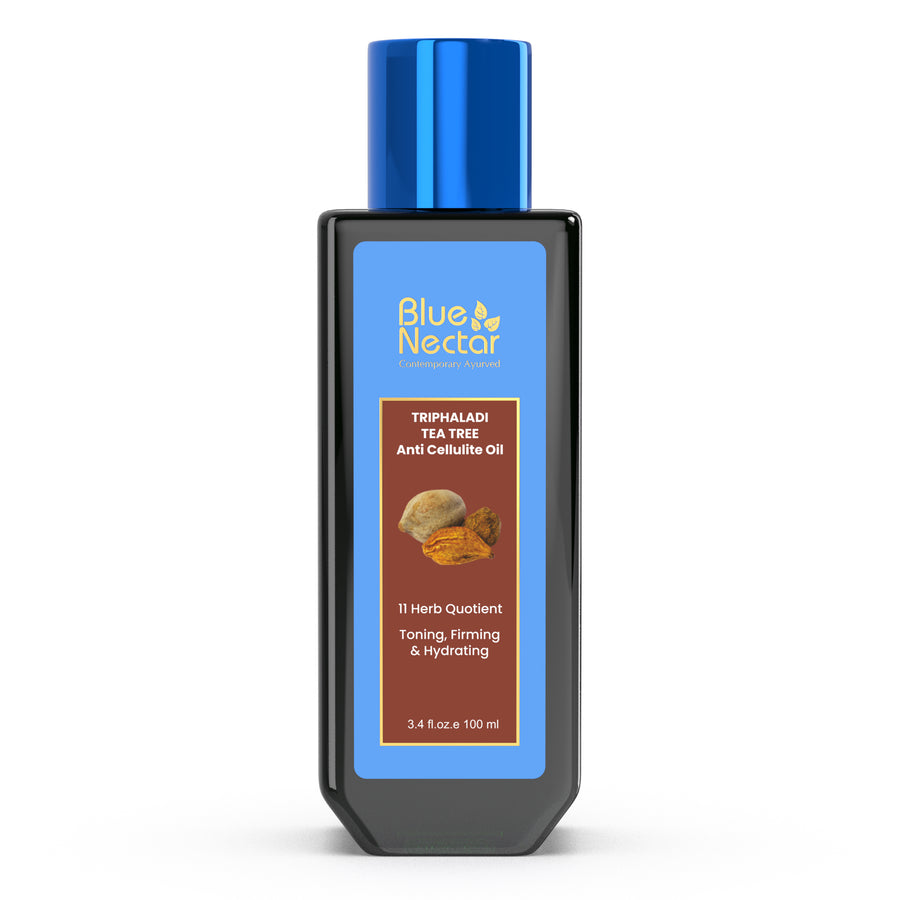

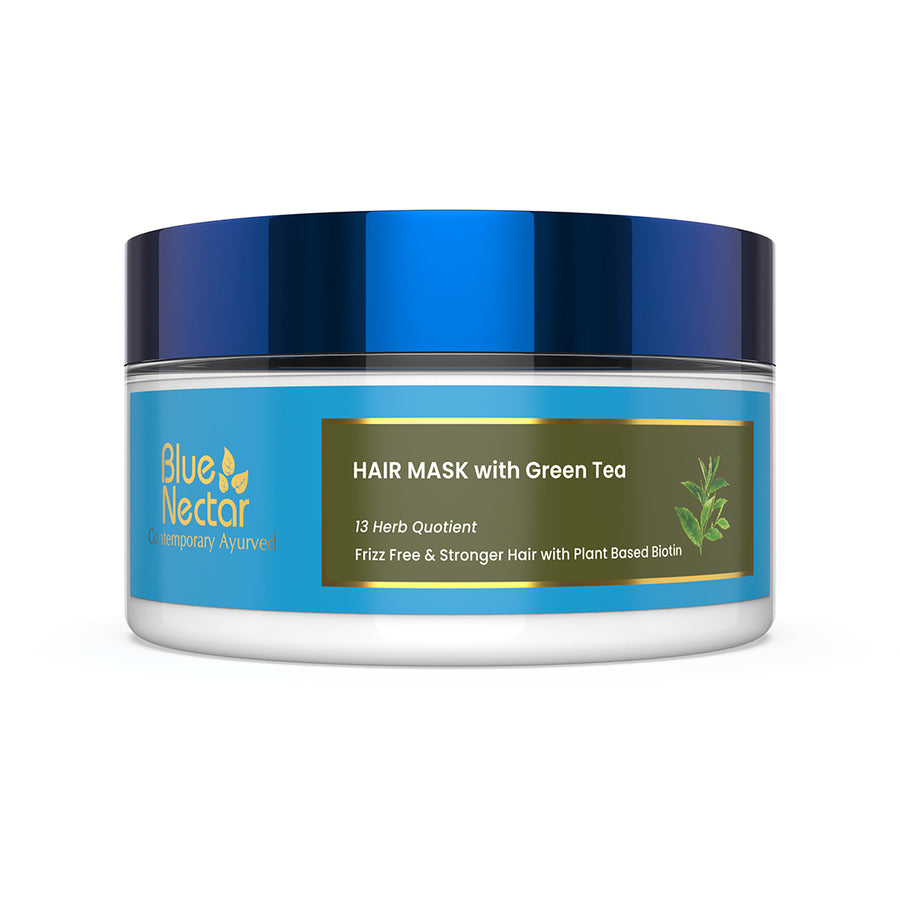
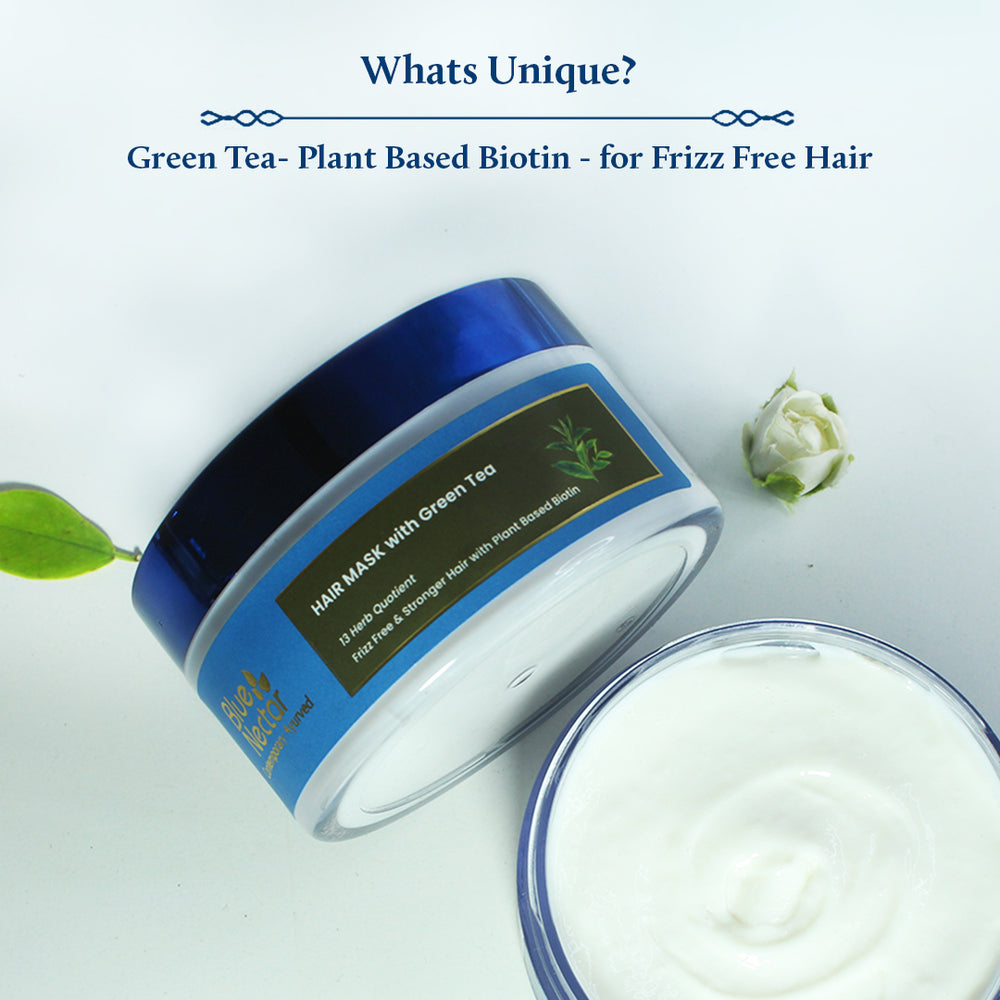


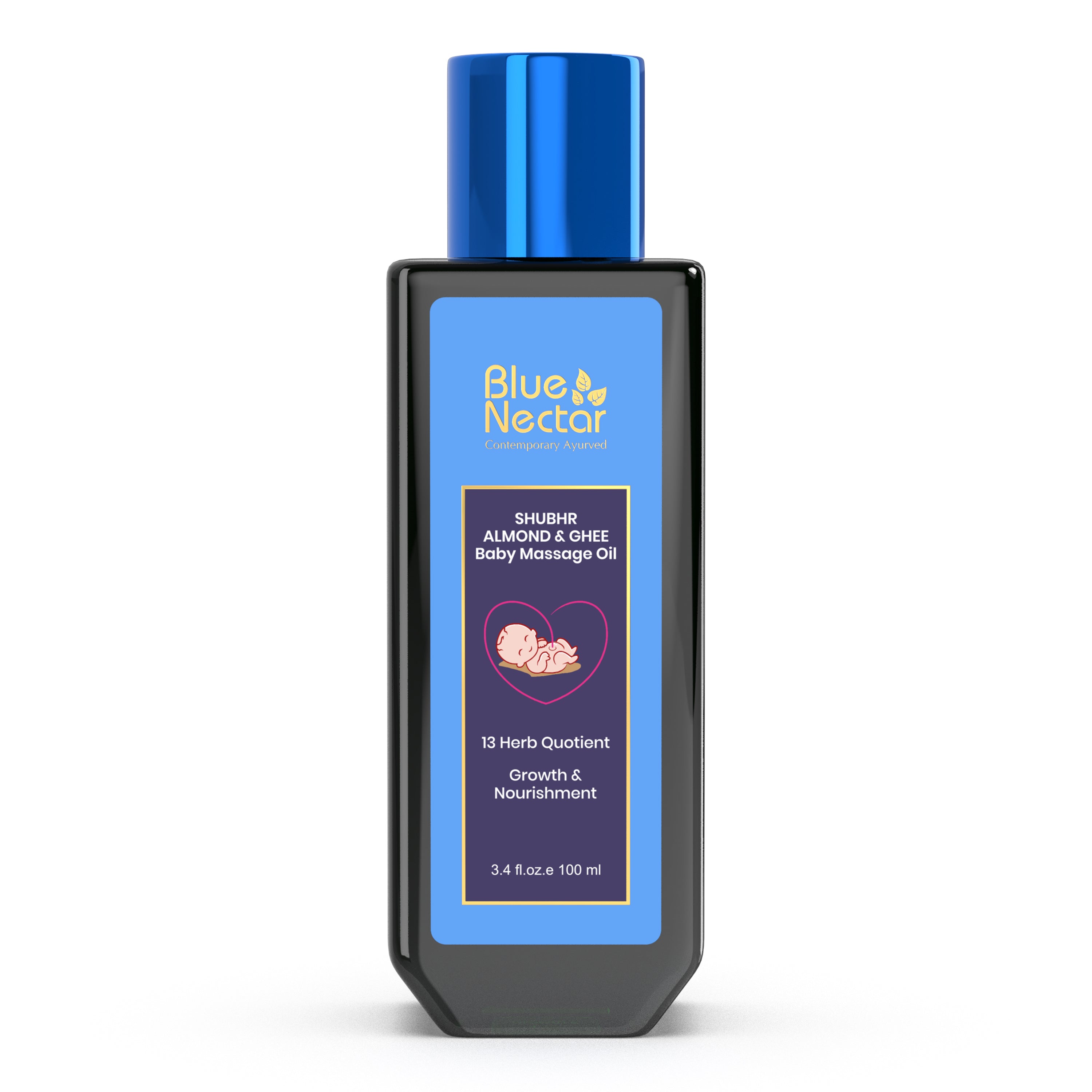

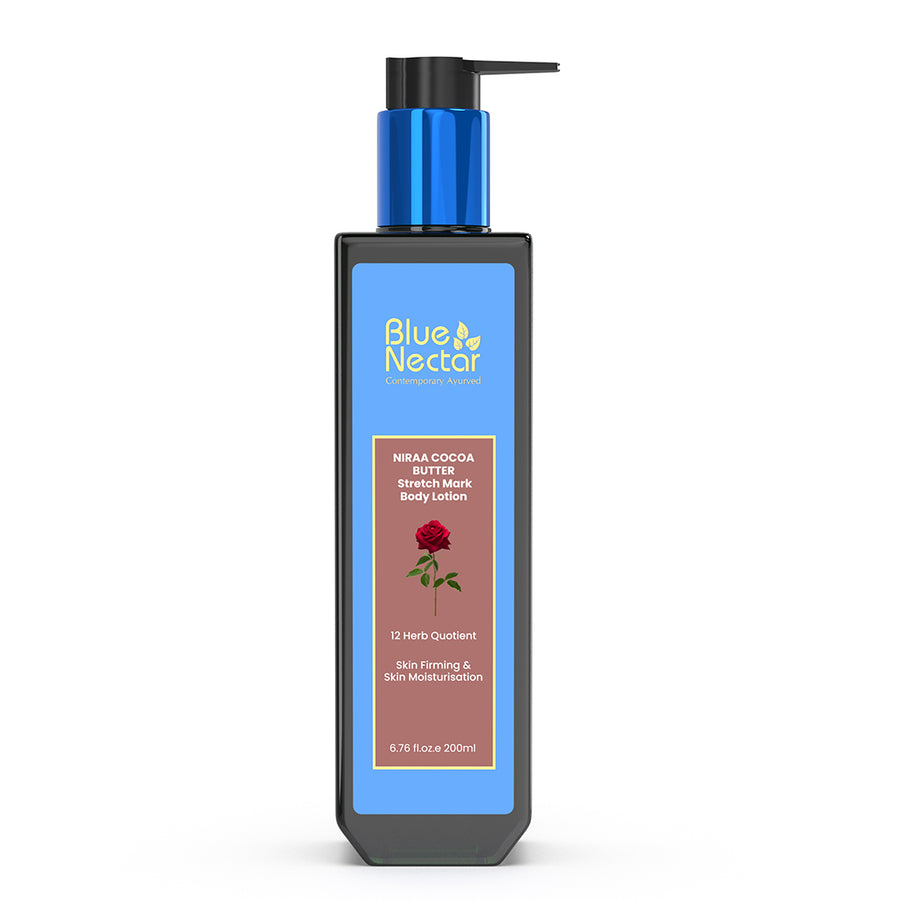

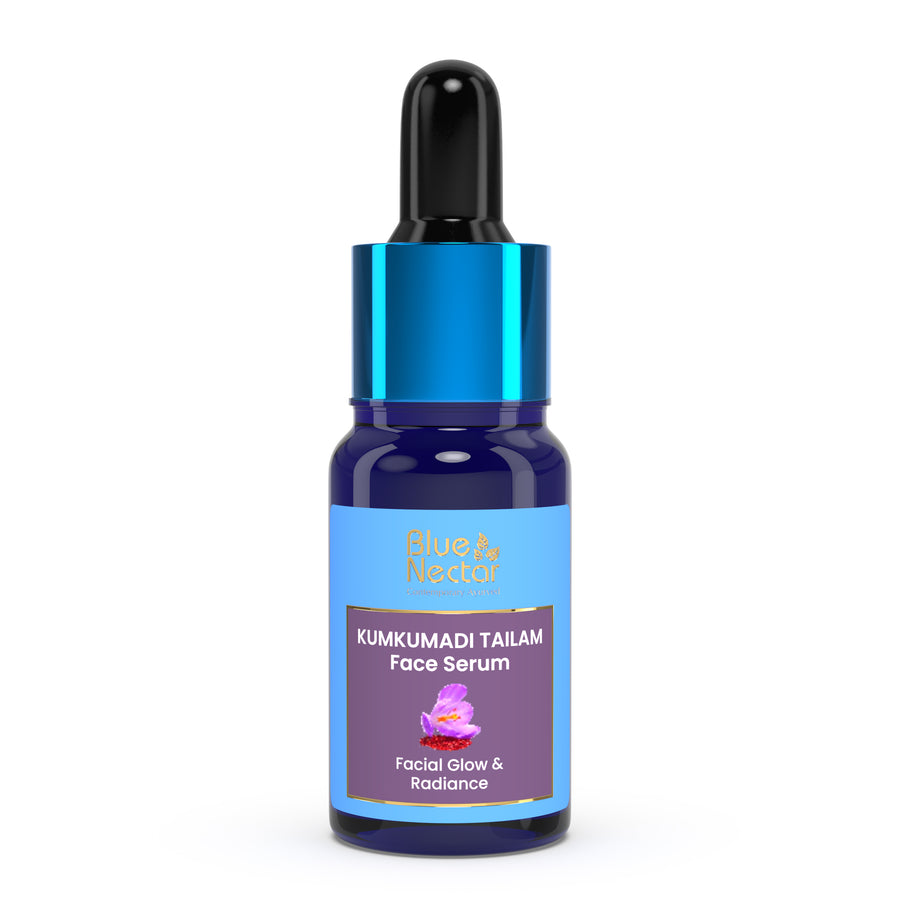


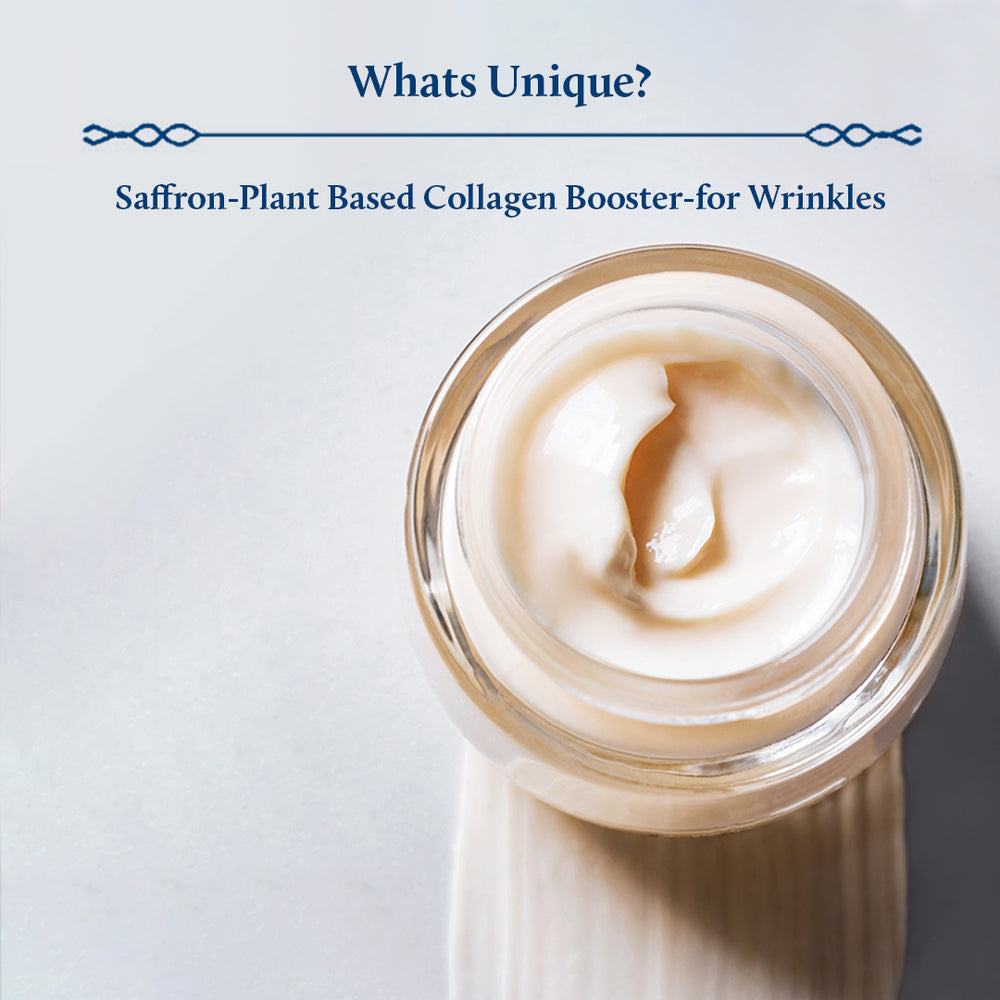
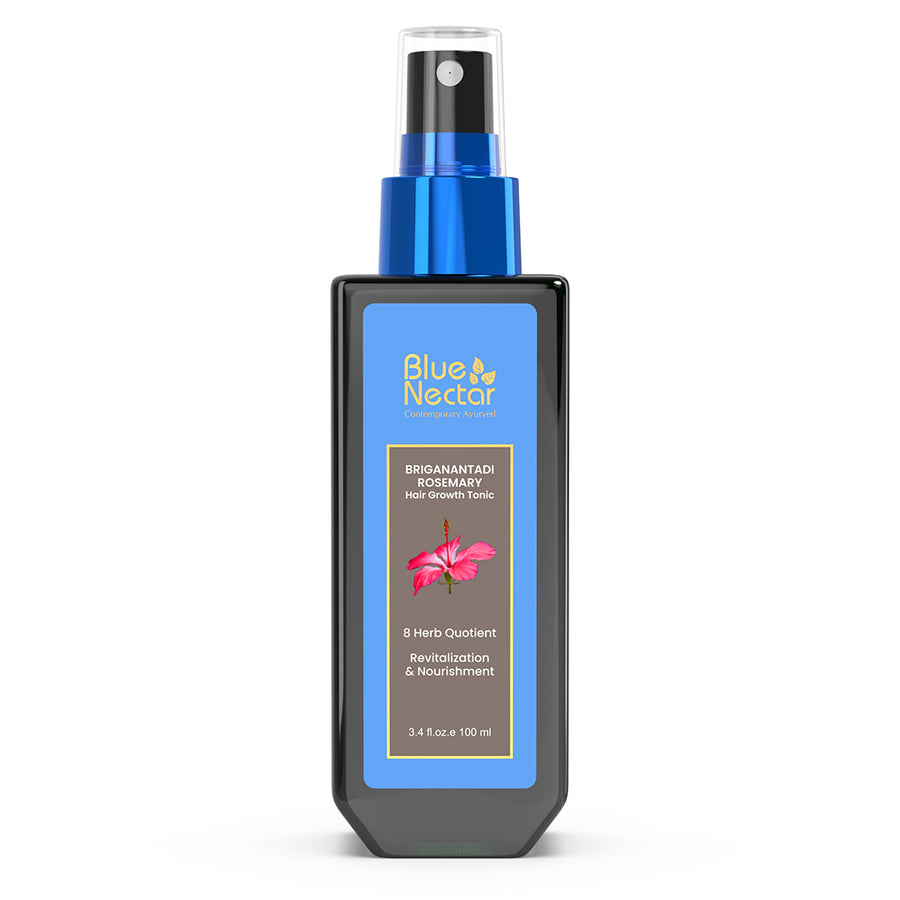

The most interesting blog I have ever seen beautifully covers both the benefits and how to use serums, preventing skin damage with serum
Leave a comment